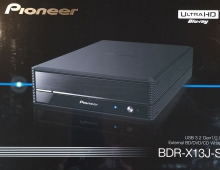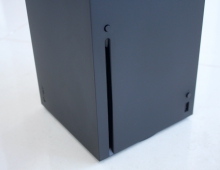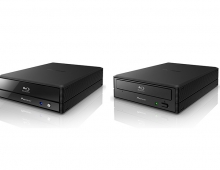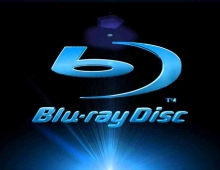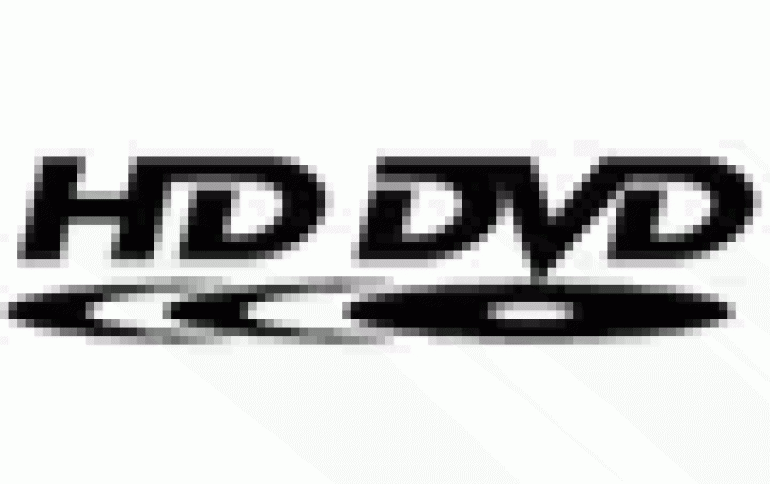
HD DVD Bets On Chinese Support
In an effort to deliver affordable and hardware to consumers, Toshiba has encouraged Chinese manufacturers to adopt the HD DVD technology - or variations of it - in their machines. However, such a move could turn out to be risky for Toshiba, despite the potential success of the HD DVD format.
It is true that by making the HD DVD technology available to the Chinese makers, Toshiba might get cheaper HD DVD players in the stores months ahead of rival Blu-Ray, backed by Sony. This was confrmed some years ago when the red laser DVD became a mass market item in the United States after low-priced models arrived from China and filled big-box retailers.
However, leaving the Chinese makers to drive down prices could be risky, since the Chinese machines could undersell Toshiba's players. In addition, the transistion of Toshiba technologies into cheap commodities could lead to difficulties in collecting licensing and royalty fees from Chinese makers, as it has happened in the past. Many Japanese manufacturers have waged legal battles against Asian rivals to recoup unpaid royalties and settle patent-infringement allegations.
Although the traditionall stance of Japanese manufacturers is not to share their technology with Chinese, Toshiba believes that it would be the key to success. "When a technology is established, it's wise to keep technology that will help you stand out from competitors", said Keisuke Ohmori, a Toshiba spokesman. "When you want to establish a new market, you need a different approach to gain sales volume."
Sony and the rest of the Blu-Ray backers are more skeptical on the issue and they do not consider licensing their technology to Chinese, at least for know. "The BD Association is an open association, in which the Chinese can join too. The Chinese community has not made any final choice, no matter what the HD DVD camp is stating" said Mr. Frank Simonis, Strategic Marketing Director Philips Optical Storage, in a previous statement. While Sony says Blu-ray technology is available to those willing to pay, it admits to heavily screening newcomers. This is partly to prevent the technology from flowing to companies that could defeat the extensive anti-pirating controls that will be built into Blu-ray recorders to restrict disc copying.
In September, two of China's largest made-to-order DVD makers, Amoi and JiangKui, said they would start using Toshiba?s HD-DVD format to produce high-definition disc players for other companies as early as next year. The companies cited Toshiba?s greater willingness to share its technology.
"Compared to the Blu-ray standard, the DVD Forum has been more friendly and open to the Chinese consumer electronics manufacturers," JiangKui , located in eastern city of Zhenjiang, said in a statement, referring to the industry body that has backed Toshiba's HD-DVD format.
Sony plans to sell Blu-ray disc players for less than $1,000 next year. Toshiba made the same claim earlier this year.
JiangKui, which will start selling HD-DVD players in the United States and Europe next year, has not yet said what it will charge, though most analysts say it will be far less than Toshiba?s brand-name machines.
Whatever the price, China's entry into the next-generation DVD market is likely to pressure the Blu-ray companies to cut prices.
However, leaving the Chinese makers to drive down prices could be risky, since the Chinese machines could undersell Toshiba's players. In addition, the transistion of Toshiba technologies into cheap commodities could lead to difficulties in collecting licensing and royalty fees from Chinese makers, as it has happened in the past. Many Japanese manufacturers have waged legal battles against Asian rivals to recoup unpaid royalties and settle patent-infringement allegations.
Although the traditionall stance of Japanese manufacturers is not to share their technology with Chinese, Toshiba believes that it would be the key to success. "When a technology is established, it's wise to keep technology that will help you stand out from competitors", said Keisuke Ohmori, a Toshiba spokesman. "When you want to establish a new market, you need a different approach to gain sales volume."
Sony and the rest of the Blu-Ray backers are more skeptical on the issue and they do not consider licensing their technology to Chinese, at least for know. "The BD Association is an open association, in which the Chinese can join too. The Chinese community has not made any final choice, no matter what the HD DVD camp is stating" said Mr. Frank Simonis, Strategic Marketing Director Philips Optical Storage, in a previous statement. While Sony says Blu-ray technology is available to those willing to pay, it admits to heavily screening newcomers. This is partly to prevent the technology from flowing to companies that could defeat the extensive anti-pirating controls that will be built into Blu-ray recorders to restrict disc copying.
In September, two of China's largest made-to-order DVD makers, Amoi and JiangKui, said they would start using Toshiba?s HD-DVD format to produce high-definition disc players for other companies as early as next year. The companies cited Toshiba?s greater willingness to share its technology.
"Compared to the Blu-ray standard, the DVD Forum has been more friendly and open to the Chinese consumer electronics manufacturers," JiangKui , located in eastern city of Zhenjiang, said in a statement, referring to the industry body that has backed Toshiba's HD-DVD format.
Sony plans to sell Blu-ray disc players for less than $1,000 next year. Toshiba made the same claim earlier this year.
JiangKui, which will start selling HD-DVD players in the United States and Europe next year, has not yet said what it will charge, though most analysts say it will be far less than Toshiba?s brand-name machines.
Whatever the price, China's entry into the next-generation DVD market is likely to pressure the Blu-ray companies to cut prices.


